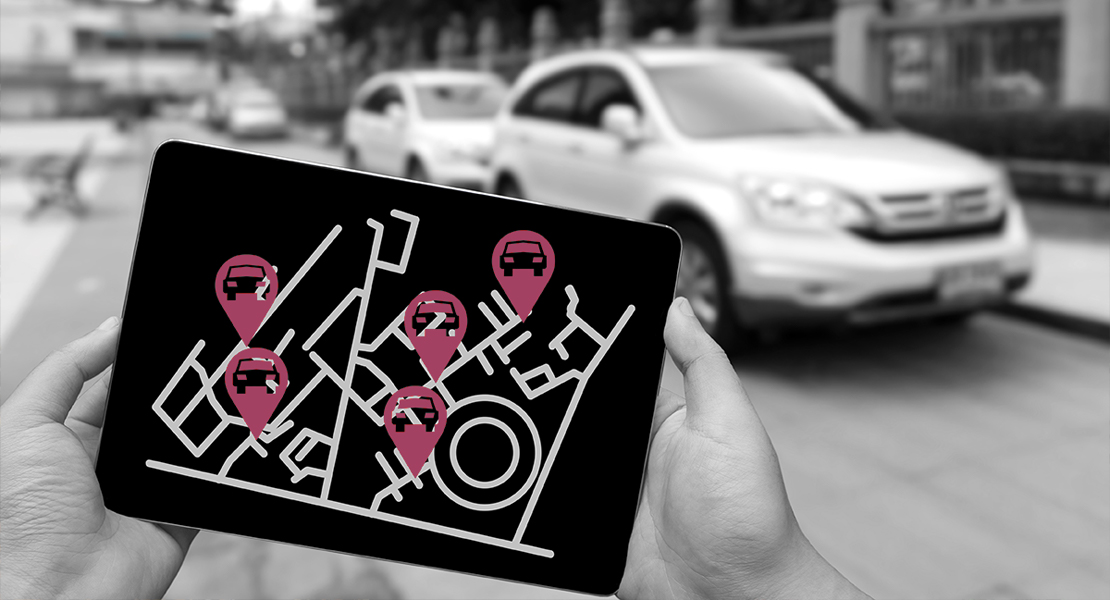International trends, especially coming from the Asian area, are often influencing other domestic markets, including the market for smart mobility and mobility ecosystems. This was already the case with e-scooters, bike sharing and cashless payment to name prominent examples. In this context it is interesting to have a look at the Chinese mobility market to identify trends in an early state and try to adapt them for the German market. Detecon International conducted an in-depth comparison of Smart Mobility Services via internal and external research and is now sharing international hands-on experiences.
In an earlier article, we already addressed the topic of shared mobility in times of corona in Germany. We had a look at the resulting challenges, current approaches to face those and the implications for the future shared mobility market. This topic will therefore not be particularly addressed within this article.
Low car ownership leads to major ride hailing market share in China
One of the most frequently and controversially discussed modes of mobility is ride hailing, with prominent examples such as FreeNow / Sixt Share (Germany) and Didi (China). With ride hailing (incl. taxis) continuously marking about 30% of the Chinese shared mobility market, the importance of this mode of transportation becomes clearer. In Germany however, the market share is considerably less when compared to China as it marks quite stable at around 15%. Looking at the monetary aspect of revenue, roughly 34% of revenue share in the shared mobility sector once again illustrates the dominant role of ride hailing in the Chinese market.
One of the main reasons that ride hailing services are much more popular in China than in Germany is that the car ownership per 1000 people in China is still relatively low. A report by World Bank showed that by 2019, the ownership per 1000 people in Germany reached 591 while the number of China only reached 173. People in China still rely a lot on public transportation or mobility services instead of driving private car for travel. Besides relatively lower customer demands, there are still some industry barriers for the development of ride hailing services in Germany. For example, a strong taxi union protects the benefits of traditional taxi services from being taken away by ride hailing services. Users in Germany also got used to traditional taxi services, and only a few marketing campaigns have been launched for changing user habits when the services were first introduced into the market. In contrast, Chinese ride hailing service companies put a lot of efforts on its promotion at the very beginning, e.g. price war, subsidy war, etc.
A report showed that around 80% (Trustdata.com) of ride hailing users in China are from tier one and tier two cities. People living in these cities have high demands for short to middle distance traveling while traditional taxi services do not typically meet this demand. With ride hailing Apps, people can get a ride service within shorter time and the price is more transparent. Vehicle types are more diversified and users can choose car services they prefer, based on their individual needs, e.g. express car service, taxi, or premier car service. Passengers’ personal safety is well protected as drivers all need an ID check by the platform beforehand and real-time monitoring is always available by the passenger and the platform.
Despite reasonable traffic and an unmatched fascination for cars only limited growth potential in German car sharing market
In contrast to the ride hailing market, car sharing services are much more popular in Germany than in China. Nevertheless, the market share of car sharing in both countries is relatively low, it only accounts for less than 1% of shared mobility market in China, while that of Germany is over 4%. Revenue of car sharing services in both markets are in line with their market shares. Its revenue in China market is less than 1%, while in Germany it accounts for more than 4% in 2020.
Considering the heavy asset business operation model and other problems like limited parking areas in big cities, the car sharing market is foreseen to be stagnant in China and Germany. However, this service in Germany seems to still have a small growth potential. This is related to multiple root causes, including a strong automotive industry and a general fascination and a high prioritization of cars. Despite those points, the heavy asset operation model and a relatively low profitability is reducing the attractivity of the car sharing business model also in Germany.
Another valid reason for the low share of car sharing services in the Chinese market is the limited number of license plates which makes it in general hard to register any kind of vehicle. For electric driving missing charging stations and standardization might also lead to an unsatisfying user experience. From a technological point of view, the need of an app, network coverage and a registration could also be hurdles, that reduce the acceptance and usage of car sharing both in Germany and in China. Additionally, the requirement of a minimum age as well as the need for a driving license is reducing the number of potential customers. One additional point that is relevant for the Chinese carsharing market is the need of a deposit that needs to be deposited to use this service.
Bike sharing is the preferred mode of last mile transport in Chinese Mega Cities
Another important mode of transportation – especially in the Chinese market – is bike sharing. In China, the bike sharing market share marks at around 20%, with an increase to 25% in times of corona. In Germany, the market share is only a fraction of that, with roughly 3%. In both markets analysts anticipate a stagnation of the usage share. Interestingly, the revenue share is in both market significantly smaller than the usage share, with a revenue share of roughly 3% in China and <1% in Germany, leading to the assumption, that Bike-Sharing is a rather inexpensive mode of transportation. Bike Sharing seems to be a “relative winner” in times of corona since it is an individual and outdoor mode of transportation. Overall bike-sharing is far more established market in China compared to Germany, which might be a trend, that could also influence the German market.
Considering qualitative factors, especially the respective “bike sharing usage” statistics might come by surprise. German cities and communities generally plan to reduce car traffic and therefore push sustainable alternatives such as bike sharing. Almost every major German city has either its own or is cooperating with bike sharing providers. However, bikes have been very popular over the last decades, which is why many German citizens already own one, hence do not see the immediate need of the sharing service. Additionally, it is being observed that more comfortable substitution products such as e-scooters are on the fast track of popularity. The Chinese market in comparison, could not differ more. Due to the mere seize of many cities, bikes have not been a favored alternative until lately, when sharing provides aggressively pushed into the market with profitable and customer centric services. Bike sharing has seen an immense upraise primarily for last mile distances (2-4km) in tier one cities, where skipping traffic jams becomes effortless. With big data and AI continuously emerging, operations and business models will profit and make bike sharing a lasting alternative for short distances.
Customer satisfaction first, mobility services second
There are varying customer needs for shared mobility services in the Chinese and German tier 1 cities. Depending on this, there are differences in usage and acceptance behavior, which are also reflected in our analysis. We are convinced that whoever will be able to focus most precisely on those customer needs, will be set up successfully for the shared mobility future. The future markets cannot be divided by different mobility services, but by the satisfaction of customer needs, in this case: Mobility.









